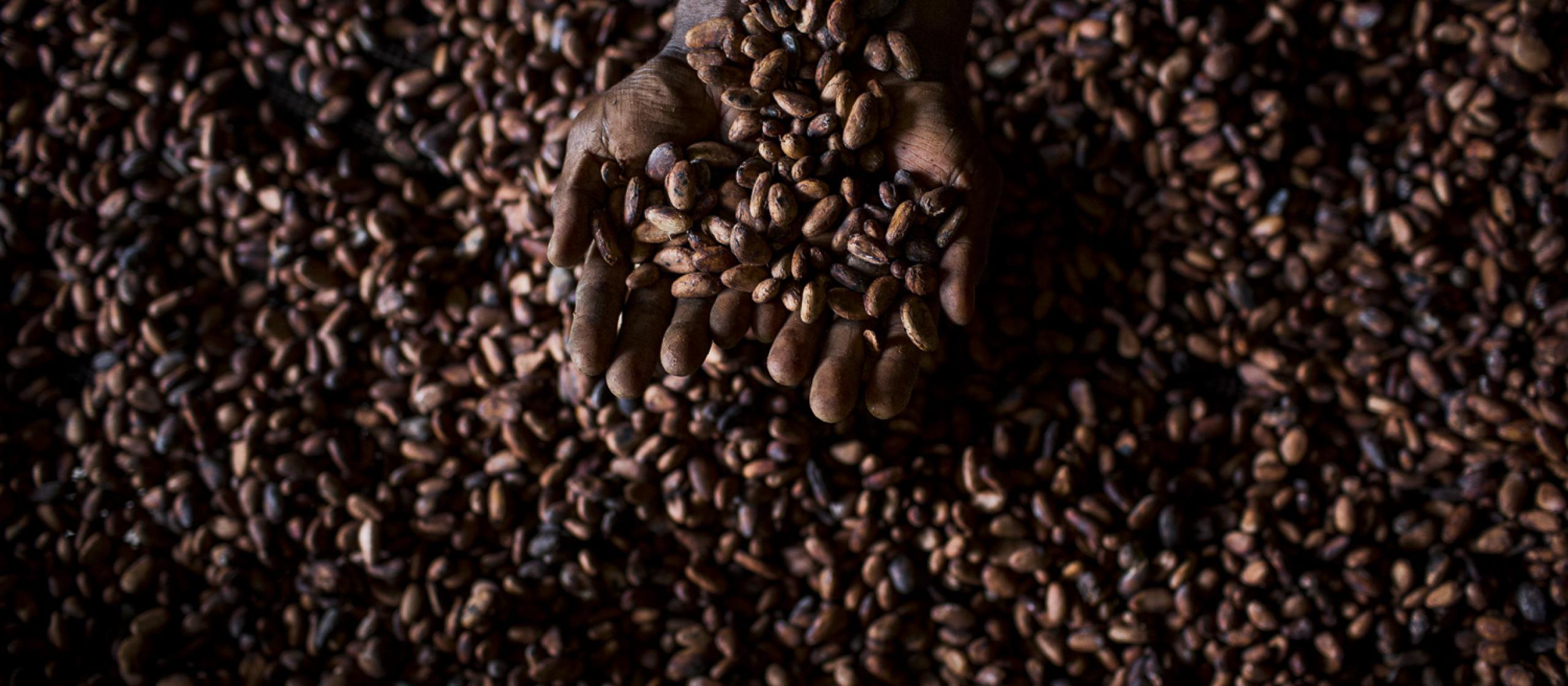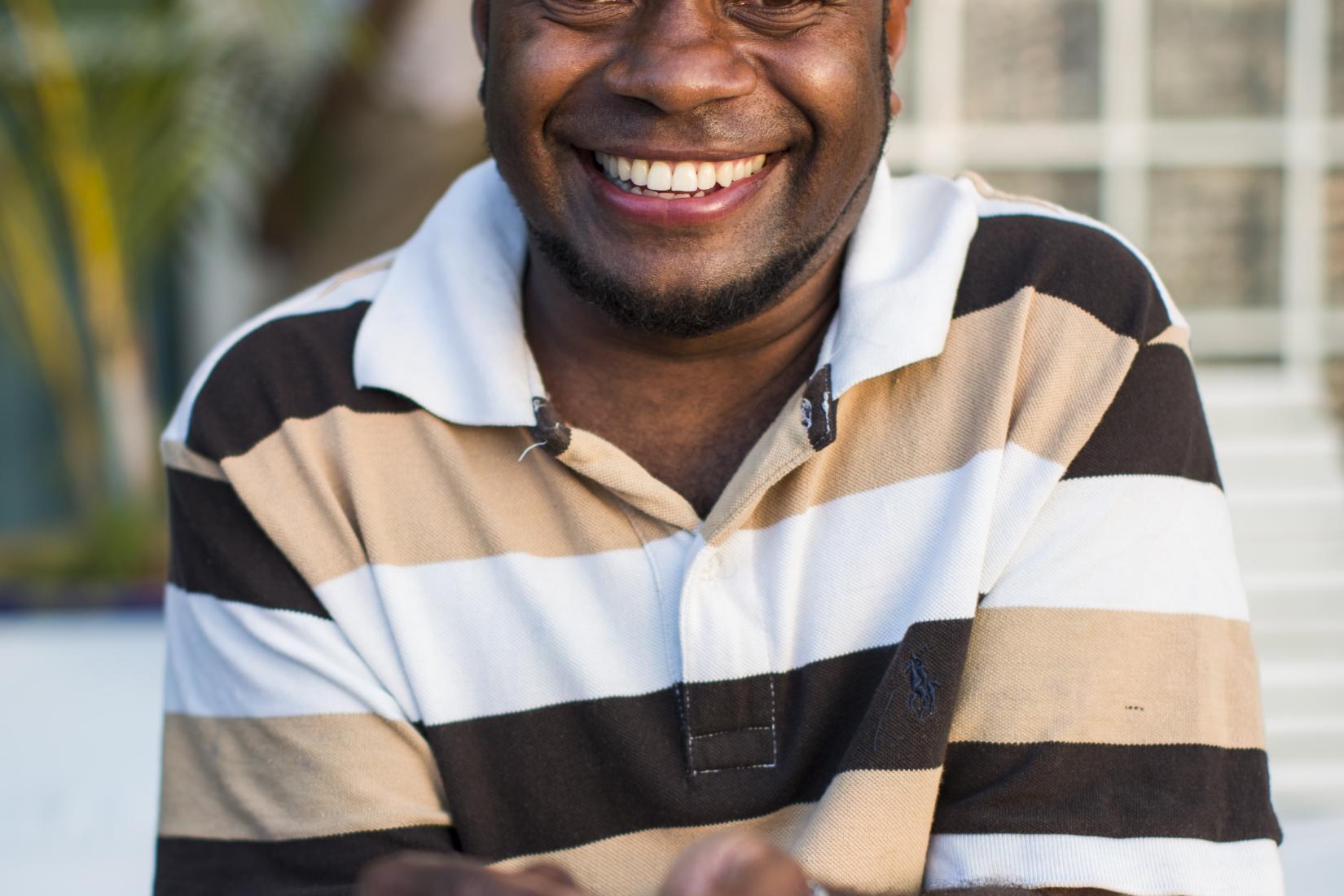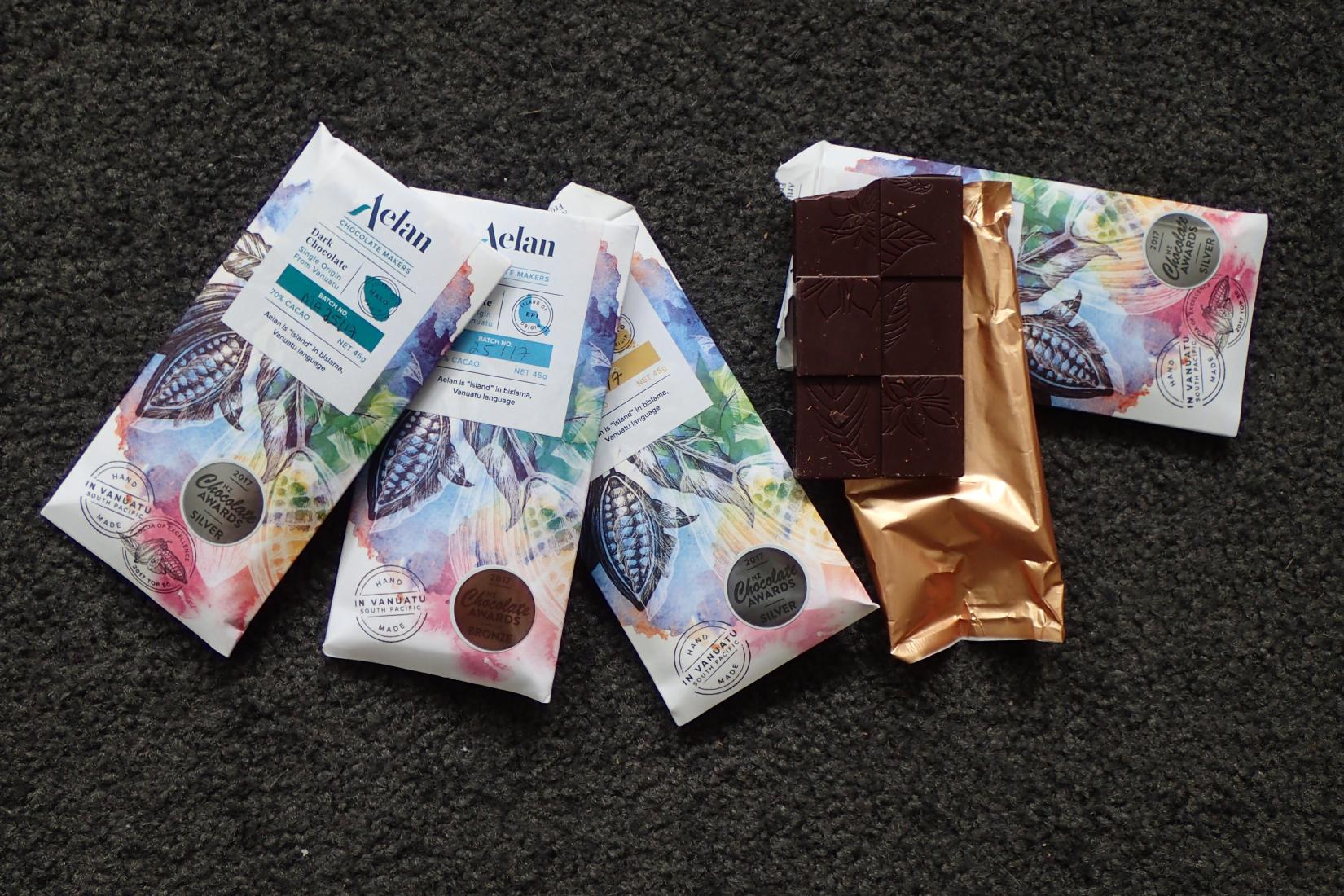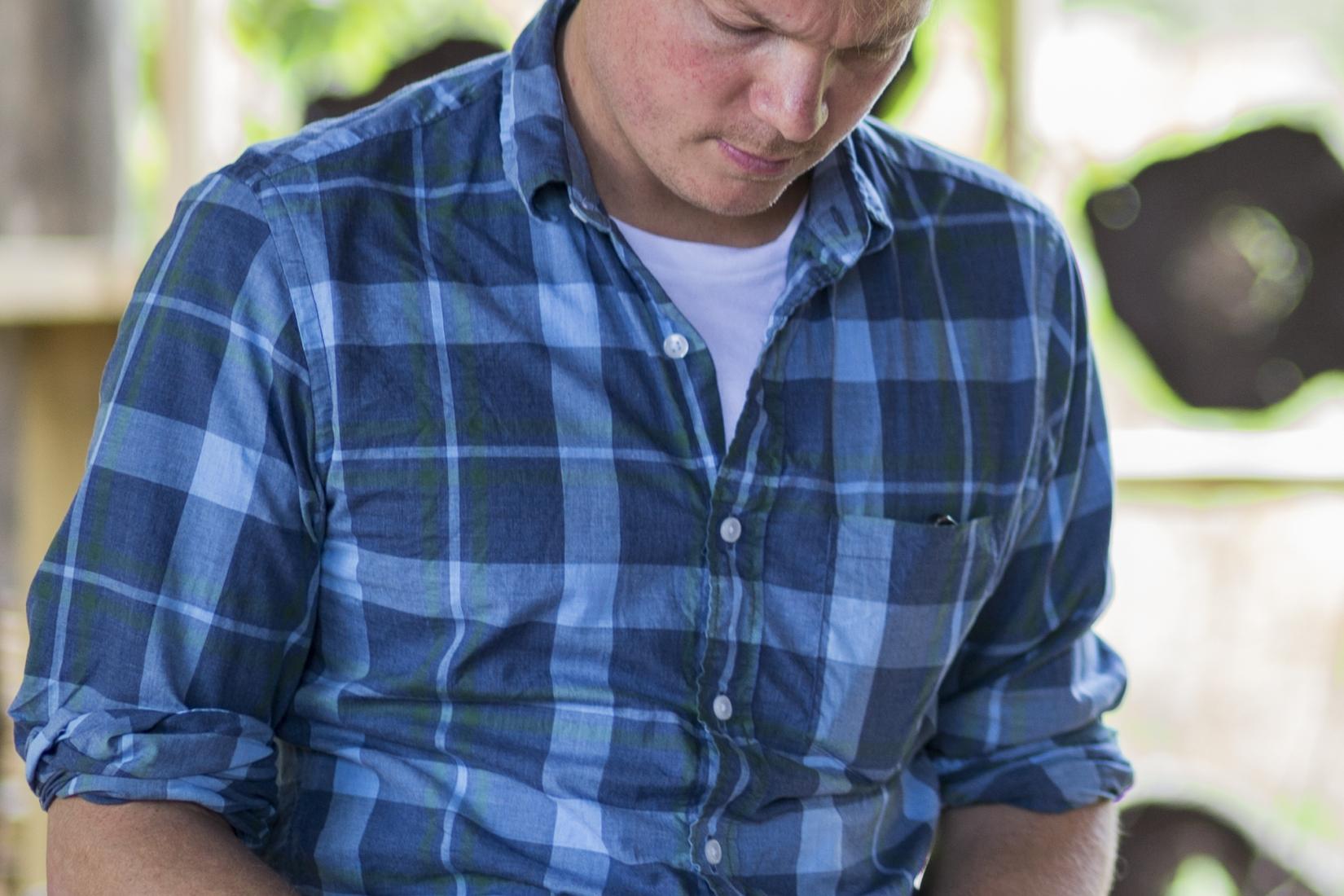The competition provided the opportunity to evaluate progress. Cocoa samples from ten communities were brought to Port Vila for processing into chocolate by Sandrine Wallez, head chocolate-maker from local NGO ACTIV (who had herself received training at Australian chocolate maker Haigh’s of Adelaide). The chocolate samples were then subjected to a rigorous blind-tasting evaluation by an international panel of judges, including father-and-son team, Mark and Josh Bahen, and Ben Kolly from Haigh’s. Josh Bahen declared himself deeply impressed by the progress the growers had made.
This particular chapter of the story ended with Denis as the proud winner of the Vanuatu competition. However, as tends to be the case with ACIAR initiatives, the story has deep rootsand it continues to bear fruit in all sorts of different ways.
The origin of this work was a scoping study commissioned by ACIAR in 2005/2006. In that study, Fiji-based economist and entrepreneur Andrew McGregor teamed up with cocoa sustainability specialist Smilja Lambert from Mars Inc. (a partner in ACIAR cocoa projects in Indonesia and Papua New Guinea) and New Guinean cocoa evangelist John Konam from SPC. Their work, which has subsequently guided ACIAR’s cocoa research strategy in the region for over a decade, reviewed the state of the very different cocoa industries in Fiji, Samoa, Solomon Islands and Vanuatu – and sketched out a different trajectory for each.
Since then, ACTIV has gone on to develop local manufacture of fine chocolate in Port Vila, with ‘single-origin’ lines from four different islands. Benefitting from links established by ACIAR’s Pacific Agribusinesss Research-for-Development Inititiative (PARDI), at least five Australian high-end chocolate-makers are now sourcing beans from Pacific island producers, offering them a very much better price than the Asian bulk market. And an ACIAR project funded by Australia’s Department of Foreign Affairs and Trade in the Bougainville Autonomous Region of PNG, has so far organised two successful chocolate competitions, establishing further mutually beneficial links to Australian chocolate-makers. Meanwhile, at the Salon du Chocolat in Paris, cocoa samples from producers in Fiji, Solomon Islands, PNG and Australia have competed with the best in the world and won ‘Cocoa of Excellence’ awards. At ACIAR, we feel that our researchers and network of partners are at the centre of a veritable renaissance in Pacific island cocoa and chocolate.






